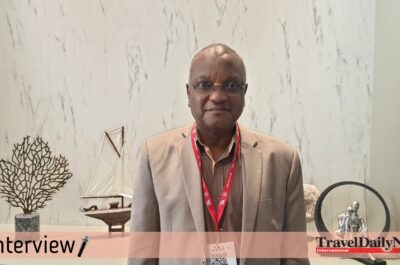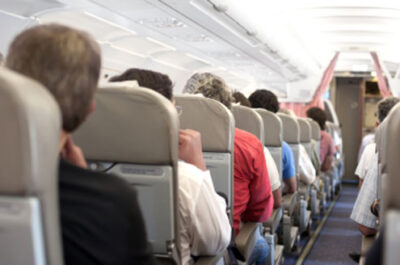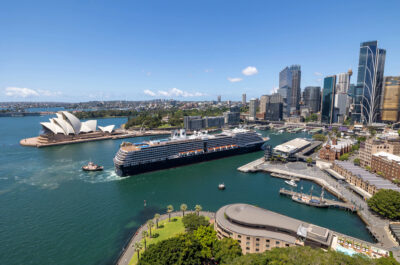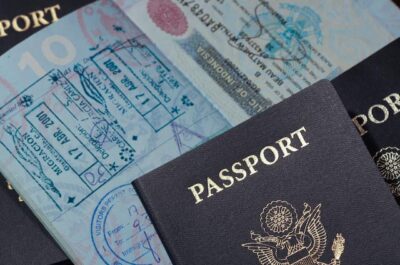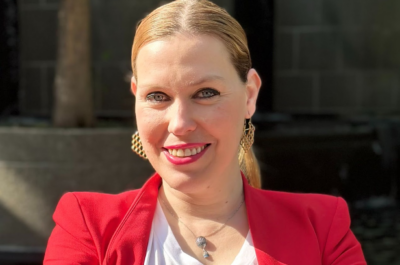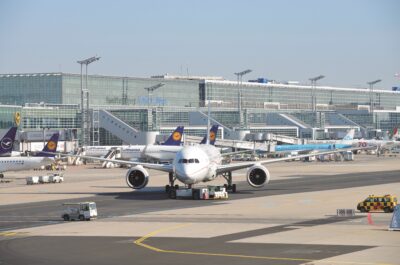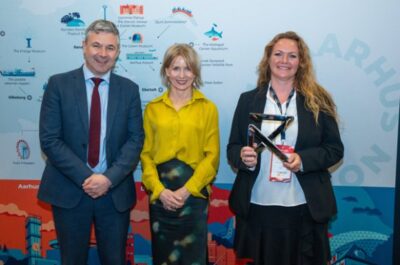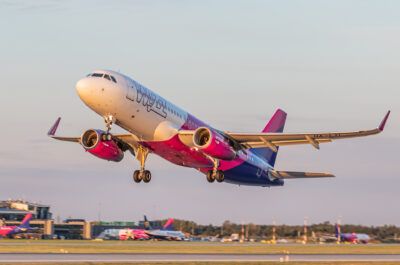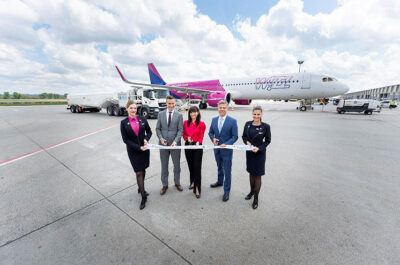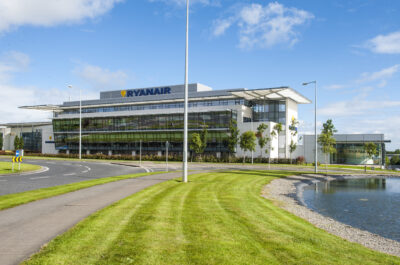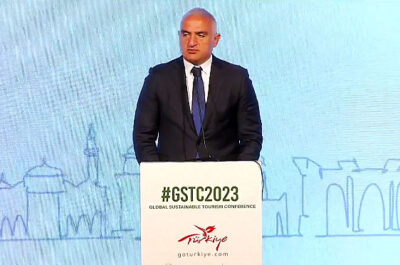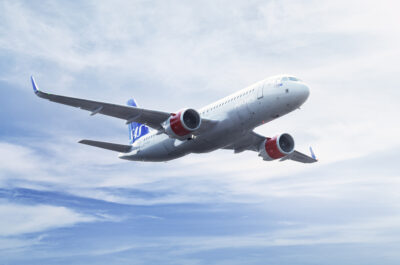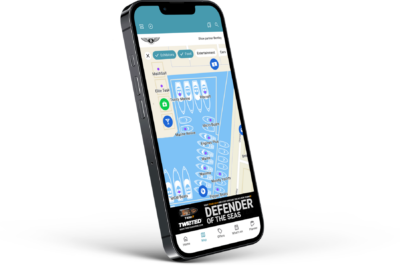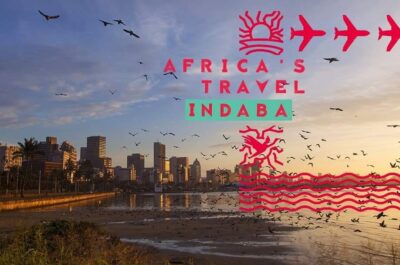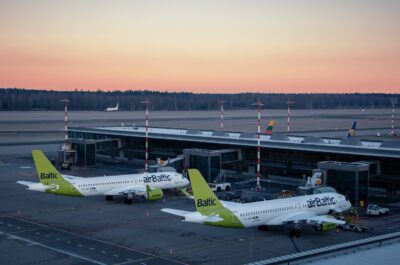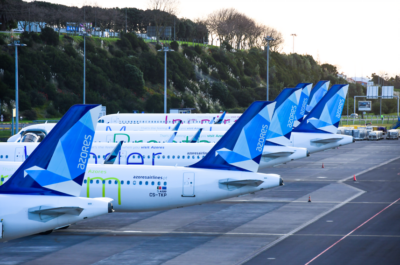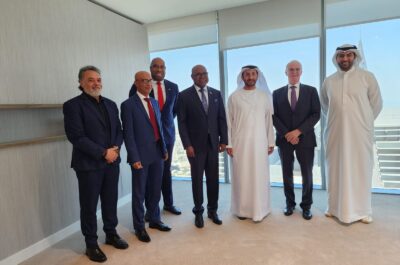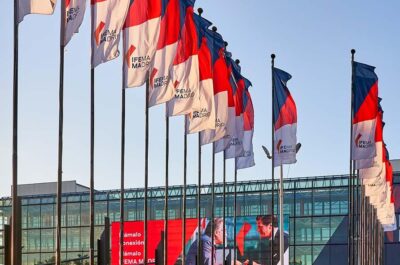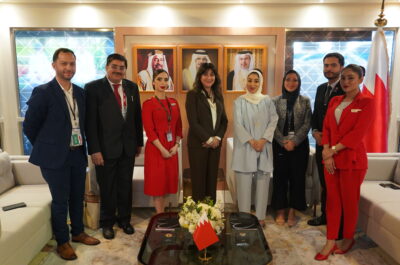Remarks of Tony Tyler, IATA's Chief Executive Officer at the African Airlines Association 45th Annual General Assembly in Mombasa
Africa is high on IATA’s priority list. Earlier this year we held our 69th Annual General Meeting in Cape Town. Together with that, this is my fourth visit to the continent in this year. And with Raphael Kuuchi soon to be the IATA vice president for Africa, our ties and work in Africa – much of it in cooperation with AFRAA – will only grow stronger.
On 1 January we will celebrate the centenary of the first scheduled commercial flight. It was a short hop between St. Petersburg and Tampa, Florida. But it launched an industry that changed our world in a very big way. From how we trade and do business to how we spend our leisure time or interact with our families – whether at work or at play, aviation has had a profound and positive impact.
In Africa the air transport industry plays a crucial role. A few kilometers of runway can connect even the most remote community to the global mass transit system. In a continent of vast distances air transport is often the only viable option to provide the connectivity that drives economic and social development. Already African aviation supports some 6.7 million jobs and $68 billion in economic activity. And I believe that this continent holds the greatest potential for aviation to grow as a force for good – changing peoples’ lives for the better.
But it is a tough business. We made a profit in only half of the years since 1947. Fortunately this year will be profitable – but only just. We expect the global industry to make $11.7 billion this year, increasing to $16.4 billion in 2014. These may seem like big numbers. But we will carry over 3.3 billion passengers next year. And a very rough calculation show that the average airline profit per passenger carried will be somewhere around $5. With high oil prices and struggling economies in many parts of the world, this is an achievement that speaks to the efficiencies that the industry has gained over a decade of business transformation.
African airlines have been a part of that transformation. But you have many unique challenges. And the performance of airlines based in this continent has hovered around breakeven for several years. So the industry is surviving, but is that enough to attract and support the investments needed for African aviation to seize emerging opportunities and play a greater role in stimulating the continent’s development?
And I am concerned that actions by some governments are making success much more difficult to achieve. Why? Because many governments have forgotten – or take for granted – the pivotal role that air connectivity plays in growth and development and the global standards that support it.
In that context, this meeting’s theme, Challenging Times – Africa’s Strategic Alignment, is particularly appropriate. Better alignment to global standards is needed. This is not a message just for Africa. It is a message I have delivered around the world.
Global standards are the foundation upon which a safe, secure, efficient and integrated global air transport system has been built. A passenger can buy a single ticket, pay for it in a single currency and expect the ticket to be recognized by any of the team of airlines that will get him to his destination. The system is so reliable that we don’t often think about the enormous coordination that makes it possible. That is why we need to remind governments of the value of global standards – to support aviation and their economic vibrancy.
African aviation has a new voice on global standards. Last week Dr. Olumuyiwa Benard Aliu was elected as President of the Council of the International Civil Aviation Organization. Benard is the first African and only the fifth person to hold this important post. We look forward to working with him on global issues and on those with a special focus on Africa as well.
Safety
The most obvious role for global standards in Africa is in safety. And improving safety is the biggest issue on the African agenda.
Over the last century, global standards transformed air travel from a high risk adventure into a routine part of daily life. And when it comes to operational safety management, the IATA Operational Safety Audit (IOSA) is the gold standard. IOSA will not eliminate all accidents, as shown by the recent tragedy in Russia. The first airline was audited a decade ago. In 2009 it became a condition of IATA membership. And the numbers on safety performance clearly show that airlines on the registry perform better.
Africa is no exception. None of the 25 IATA members here (17 in Sub-Saharan Africa and 8 in North Africa) had an accident in 2012. That aligns with that of all airlines on the registry. But the overall safety record for Africa remains a problem that we must fix. African aviation – including non-IOSA carriers – accounts for about 3% of global airline traffic. And last year it accounted for nearly half of the fatalities on Western-built jets.
I believe that much of the solution can be found in global standards. African Governments recognized this in the Abuja declaration which aims to achieve world class safety performance in Africa by 2015.
The Declaration focuses on concrete initiatives:
- The establishment of independent and sufficiently funded civil aviation authorities
- Implementation of effective and transparent safety oversight systems by all African states
- Completion of IOSA by all African carriers
- Implementation of accident prevention measures focused on runway safety and loss of control
- Implementation of flight data analysis
- And implementation of safety management systems by all service providers.
Each of these is about implementing global standards. In close cooperation with AFRAA, IATA is actively contributing its expertise and resources to all the Abuja Declaration’s commitments – with special attention to IOSA.
For example, through the International Airlines Training Fund we are sponsoring in-house training for 10 airlines to complete an IOSA gap analysis.
IOSA is a standard that is constantly evolving. By September 2015 we will be implementing Enhanced IOSA which includes a component of constant quality management. In this region, South African Express, Kenya Airways and Egyptair have completed a trial Enhanced IOSA audit. And I encourage all airlines on the IOSA registry in this region to join an Enhanced IOSA workshop in February that we are hosting in collaboration with South African Airways.
We are also developing an audit program for airlines that are outside of the IOSA criteria – either because of aircraft types operated or the nature and scale of their operations. The Basic Safety Audit Program (BSAP) will be rolled-out by the end of 2014. This is not an IOSA alternative. I stress that it is only for airlines that cannot be audited under IOSA. The goal is to give such airlines an opportunity to also benefit from a core of global safety standards.
Governments must also “up their game” with more effective safety oversight. As of the end of 2012 only 11 African states had achieved 60% implementation of ICAO’s safety-related standards and recommended practices (SARPS) according to the Universal Safety Oversight Audit Program (USOAP). There has been some significant progress. But, to be very frank, overall I have not yet seen sufficient urgency in dealing with this fundamental issue. Meeting the Abuja Declaration’s 2015 commitment will require a major acceleration in the pace of implementation.
This also includes capacity building among regulators. IATA is a committed partner in all these efforts. We work with many governments across the region, for example, to provide training. If we are going to deliver world-class safety in Africa by 2015, we must work together as a team of stakeholders.
I cannot leave the subject of safety without commenting on the European list of banned carriers. The banned list is not transparent and it is not an effective way to improve safety. Its implementation was driven by political concerns over Africa’s safety performance. Despite a clear difference between IOSA and non-IOSA carriers, the entire African industry has been painted with the same brush. The perception driving that view will only change with an improvement in overall performance. And global standards are the key.
By working together we can deliver world-class safety performance in Africa – the Abuja Declaration’s 2015 target. Europe will not be able to ignore that.
Regulation
Global standards, of course, go beyond safety. Consistent application of global standards in the regulatory world can also add tremendous value. Unfortunately, that is not what is happening. Today – possibly without realizing it – governments are weakening the integrity of the air transport system by introducing different and sometimes conflicting passenger rights regulations.
At least 60 governments have introduced such rules and several more are considering imposing them. These go beyond the simple guarantees that governments should provide and what is imposed on other industries. The result is a patchwork quilt of different rules which are costly for airlines and confusing for everybody – including passengers.
ICAO Member States at the 38th Assembly recognized the issue. They agreed to work towards high-level, non-prescriptive principles that are consistent with international agreements and that strike a balance between protecting passengers and maintaining industry competitiveness. IATA is fully supporting this important work with our inputs being guided by our AGM resolution in which airlines agreed on core principles for consumer protection.
It is also important that where global standards exist, governments follow them. The Montreal Convention 1999 (MC99) governs the rules relating to airline liability during international carriage by air. It delivers many benefits to passengers, shippers and airlines. One of the most important benefits of MC99 is that it provides the legal framework for the use of electronic documents in air cargo such as electronic air waybills (e-AWB’s) with all the cost, efficiency and data-sharing benefits this brings.
This is very important for African states that rely on air cargo to transport high value, time sensitive cargo to markets around the world. But in order to use e-AWBs airlines need to ensure that both the origin and destination countries have ratified MC99. This is not the case in many parts of the continent. In fact, of the 88 countries that have not ratified MC99, the majority are in Africa. The African Civil Aviation Commission has urged states to ratify MC99 as did the recent 38th ICAO Assembly. We need airlines in Africa to engage their governments to ensure they understand that MC99 is a win-win for all stakeholders.
In sum, my message to governments is to:
- Recognize that airlines want to get their passengers to their destinations with their bags, on time, all the time
- Understand that we operate in a highly-competitive industry in which customers can and do vote with their wallets
- Seek industry input and conduct a rigorous cost-benefit analysis before considering new commercial regulations
- Where global standards exist, use them
Taxation
Global standards and recommended practices for fees and taxes also exist, particularly with regards to fuel for international flights and infrastructure charges. Unfortunately, many governments in Africa ignore them – treating aviation as a luxury rather than as a vital enabler of development.
Ethiopia, for example, imposes a tax on fuel uplift for international flights to support its stabilization fund. This contravenes the Chicago Convention and ICAO principles.
One of the key principles to ensure reasonable taxation is the need for consultation. Mozambique and Botswana recently implemented significant increases in air traffic control charges without consultation. We believe that these will eventually have detrimental effects for both. By engaging in a dialogue, we can often come to win-win solutions. Tanzania provides a good example. The Tanzania Civil Aviation Authority proposed steep increases in both air navigation and safety oversight charges. By engaging in a dialogue we agreed on a much more reasonable increase. And by working together going forward, I am confident that we can strike the right balance so that such charges deliver value for money.
A more robust dialogue on fuel charges and taxes is urgently needed. The latest example of a misguided charge is right here in Kenya. The new rail levy tax applied on jet fuel for international flights adds an estimated US $13 million to airlines’ fuel bills every year. The VAT applied on the KPC pipeline from Mombasa to Nairobi is another example that directly affects airline costs.
We need to engage governments in a more robust dialogue so that they understand the consequences of such actions on the industry and ultimately on their economies. Buying aviation fuel in Africa is about 21% more expensive than the global average. So, for African airlines fuel accounts for some 44% of their costs – much higher than the global average which is about a third. That’s a heavy burden for airlines – limiting their competitiveness and their ability to provide efficient connectivity to people and businesses that depend on air transport.
Airport security charges are another example. Many are used to fund national security responsibilities such as intelligence gathering and immigration. This breaches ICAO policy. While IATA has been successful opposing many such proposals, Senegal, Chad, Côte d’Ivoire and Equatorial Guinea are among nations that are collecting security charges which more than recover what it costs to keep aviation secure. In Chad, for example, passengers pay $80 round-trip. Private companies are lobbying African governments to develop national security services and make the airlines pay for it. And it is critical that we make sure that the airline voice is heard in a consultation process.
I won’t discuss in detail all the various other taxes and charges that African governments impose on aviation – solidarity taxes, VAT, and infrastructure development fees among them. But I would like to make the point that this plague of fees and taxes has real world consequences for the region’s competitiveness.
Across Africa I have heard many comments about the stiff competition that the Gulf carriers are bringing. I would urge governments in Africa to look at one of the factors that makes the Gulf carriers so competitive. In places like Dubai, Abu Dhabi and Qatar, governments recognize the economic benefits of connectivity made possible by a dynamic and thriving industry. They build infrastructure to accommodate demand and maintain it at world class standards. And they ensure that the industry is not shackled by heavy taxes and regulations. I would encourage governments in Africa trying to stimulate their economies to follow this example. By aligning with global standards, Africa can create the conditions for success for its airlines.
Liberalization
Access is another key condition for the industry’s success. Aviation has the potential to open up new markets, bring in new ideas and technologies, create jobs and lift people out of poverty. As just mentioned, the access to long-haul markets into Africa by the Gulf carriers has raised many competitive challenges. It’s tough, but I see African airlines rising to the challenge through various means, including partnerships and alliances.
Leaving long-haul access issues aside, I do see a fundamental challenge to build connectivity within the continent. In my experience, it is much easier to reach Africa from other continents than it is to travel within. Some 25 Africa states have broadly liberal agreements with the US. But how open are Africa’s markets to African airlines? There are 13 flights a week to Nairobi from London. But there isn’t a non-stop from Nairobi to Dakar. You can get to Istanbul daily from Mombasa in less than seven hours. But to go from here to Cairo takes at least 9 hours and one stop.
Africa’s economic success will depend as much upon internal integration as on doing business with long-haul markets. Aviation connectivity needs to be able to support both.
The African Union (AU) is celebrating its 50th Anniversary in this year which is dedicated to Pan-Africanism. The AU’s vision is for an integrated, prosperous and peaceful Africa. The Yamoussoukro Decision provides a visionary platform for aviation to play a key role in fulfilling that important mission with connectivity among the people and markets of Africa. But that is only possible if African governments recognize the collective benefit that it will bring and implement it.
The Environment
Before I conclude, I would like to give one powerful example of how governments can make decisions in the collective best interest of all. The ICAO Assembly reached an historic agreement on climate change to introduce a global market-based measure (MBM), which is a key tool that will set the industry on the path to achieving its target of Carbon Neutral Growth from 2020 (CNG2020).
Governments agreed that the next Assembly in 2016 will look at a detailed proposal. And the industry – having called on governments to adopt a mandatory global carbon offset scheme to manage growth post-2020 – will be fully supporting ICAO in this effort. Reaching this agreement was not easy – it required states to put aside self-interest to achieve a harmonized global approach.
Everybody – Europeans included – returned home with a sense of great accomplishment. So it is no exaggeration to say that the European Commission’s proposal basically to ignore the work at ICAO and include the portion of international flights within European airspace in its emissions trading scheme from January next year was greeted with shock and disbelief.
Governments will need to sort this out. And we call on them – particularly European governments – to keep the global and long-term view that underpinned the success at ICAO. The big prize is a global agreement to manage aviation’s emissions post-2020. As an industry we should remind governments of this at every occasion. In parallel we must keep unified and focused on driving the other pillars of our strategy – technology, operations and infrastructure improvements. Ensuring environmental sustainability is our license to grow. And we must stay the course and keep focused globally and for the long-term.
Conclusion
Africa is the second most populous continent and home to an estimated one-seventh of the world’s population. Yet it represents just 3% of global airline traffic. I view this is as a tremendous opportunity. Other air markets have matured or are in the process of maturing; for Africa, the future of aviation is still being created.
My message today is that by keeping and defending global standards at the core of our amazing industry we will build a future that is successful. There is no reason why the next 100 years of commercial aviation cannot become Africa’s century of flight. And we look forward to working with the industry and governments across the continent to make that a reality.
Thank you.
Theodore is the Co-Founder and Managing Editor of TravelDailyNews Media Network; his responsibilities include business development and planning for TravelDailyNews long-term opportunities.







